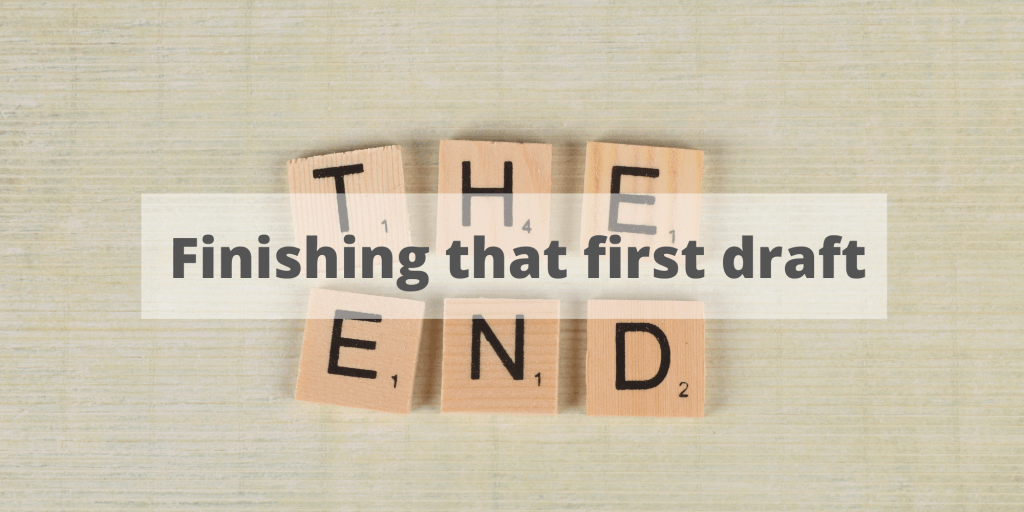3.7 MENTAL HEALTH AND WELLBEING

Writing at your best can rely on your feeling your best (or as good as you can feel). It’s really important that, while practising your craft will help you write a novel, focusing on positive mental health will enable you to complete it.
Writing is also hard. Trying to get a novel published is even harder. Writers have to be persistent and motivated; they have to focus on their writing; they have to recover from rejections and other bumps in the road; and the personal investment into a writing career can lead to countless anxieties.
All of these issues can decrease productivity and wear your brain down.
So how do you make sure you treat your brain with the same care as your writing?
Exercise

Writing by nature involves hours sitting down in front of a computer or a piece of paper, often indoors. Writers can often get lost in the chapter they’re writing, and hours can pass before we realise that we haven’t moved for a while.
Although this is great for producing lots of writing, it’s not great for long-term productivity. At some point, you might experience burn-out.
So, make sure you schedule in breaks where you do a bit of moving – within your own abilities. Looking up from your writing is a good start, as are some simple neck and wrist stretches. Perhaps go and make a cup of tea or grab some biscuits; step outside for a breath of fresh air; go for a walk on your own, with family, or your dog; or do some more intense exercise, like a jog, a swim, or a session of yoga (YouTube yoga instructor Adriene has a specific video for writers)
All of this movement will help move your ideas too. If they’re feeling stagnant – if you’re coming up against that dread writer’s block – taking time away from your writing can give you a fresh perspective on your story.
Socialise

Yes, many writers are introverts by nature! We’d rather get lost in a good book than go to a party.
However.
Writing is isolating by nature. Unless you’re collaborating on your book, then you’re going to be working on it alone. Although some alone-time helps maintain focus, it can also worsen those feelings of anxiety when you’re feeling low about yourself and your writing. If you’re stuck in a writing funk (writer’s block, hello again!), then it’s hard to pull yourself out of it on your own.
Luckily, you don’t need to go to a party, but you do need to turn to your support network.
A writer’s support network should be split into two groups – fellow writers, which you might find through organisations such as WriteMentor, online forums, or through taking part in workshops and other writing events. These writers might be on the same writing journey as you, or they might be mentors or mentees. Either way, they will intimately understand what you’re going through, and will be based place to give advice on what to do next.
However, another group is people in your life who are not writers, but still want to support you as a writer. Friends, family and partners who are not involved in the writing world can provide a breath of fresh air for a writer and help remind them that there’s more to life than writing (although it can often feel like life IS writing).
Most importantly – make time for people! Although it can be the best thing in the world to hang out with your characters, in the end they are fictional and nothing can replace real-life interactions – and your mental health will thank you for it.
Establish boundaries

Sometimes inspiration can hit and…it’s the middle of the night. And you’ve been working all day. And all you really need is some sleep. But your writer’s brain is nagging you to stay up and write because you’ve had a blank all week.
You can’t control when an idea arrives, and often our best ideas do strike unexpectedly. However, make sure you write at the best time for yourself and your wellbeing. Staying up late and working through the night, or getting up in the middle of the night, disrupts all-important sleep and will have a knock-on effect on your writing for the next day.
A way to overcome this is to have a notebook or a place on your phone where you jot down ideas to work on later when the time is right. Or, you could create a writing routine where you switch off from all distractions and give yourself the time and space to write.
And establish those boundaries with others. Hard as it is with life’s commitments, juggling writing with children, work, friends, family and so on can put massive pressure on a writer. Even if it’s an hour a week, make it clear to those in your life that this is your time to work on something incredibly important to you.
Banish (or diminish) your inner self-critic

A writer’s harshest critic can often be themselves. Writers are often ambitious, motivated, and perfectionists – which can be a great recipe for writing a book, but a bad one for mental health.
Don’t put too much pressure on yourself. Unless you have an official deadline for completing a book at the request of an agent or editor, take your time. Writing regularly is important, but writing constantly, without a break, isn’t.
If you’re overly criticising a piece of work to the point that you hate every last word in it, move away from it for a bit. Write something else. Ask a friend or a critique partner to read it – chances are it won’t be as bad as you think it is.
Plus, if you’re prone to self-critiquing, try not to edit as you write. If you do this you might censor good ideas that are rough diamonds to be polished in future drafts. First drafts are never going to be good, so it’s better to keep the momentum going and finish, rather than constantly stopping to critique what you’ve written.
Of course, your inner-self critic will rear its ugly head at the point of rejection. However hard rejection is, it’s part of being a writer. Rejections aren’t just the bane of early writers, but those at all stages of their publishing journey. And rejections for your book can feel worse than a rejection for a job, for example. You’ve poured your heart and soul into a book, spent hours and hours crafting something you’re proud of – and then your dreams get dashed by a single email.
Take any critiques of your work as steps forward instead of steps back – you’ve come far enough as a writer that you’re getting those rejections in the first place. You’ve written a book! Also set yourself goals that you can control, and that aren’t in the hands of agents or editors. For example, writing a chapter each week, or submitting to a competition – create goals that aren’t just the goal of getting published. Each time you achieve these small goals, it’ll give you a boost to go after the Big Goal.
And remember – every other writer is going through and feeling the same thing. That’s why it’s so important to integrate yourself into some sort of writing community – so you don’t feel so alone.
For more advice on keeping healthy as a writer, author, WriteMentor mentor, and course leader Lindsay Galvin has written ‘The Anxious Author’ blog series. Follow the links for Part One, Part Two, and Part Three of the series.
